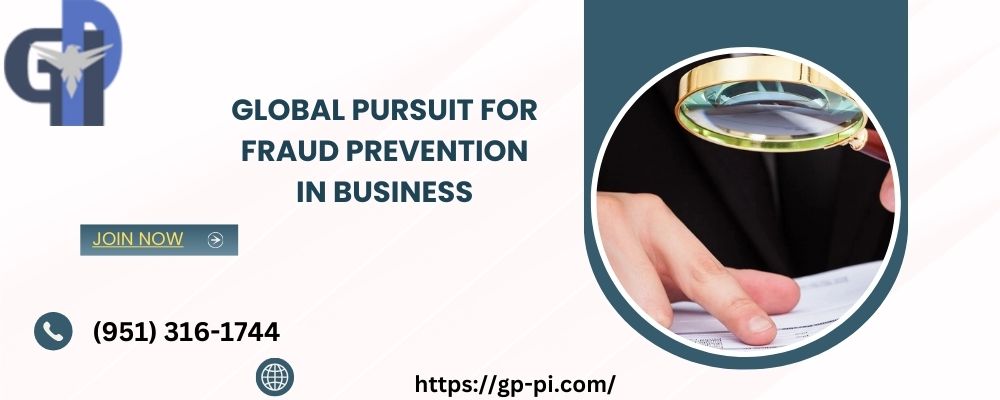The Role of a Business Fraud Investigator in Protecting Your Company

Ever feel like running a business is part detective work? It’s true that hidden challenges can pop up when you least expect them. Fraud is one of those sneaky culprits, quietly draining resources and trust. That’s where a business fraud investigator becomes your secret weapon. These skilled professionals uncover the truth behind suspicious activities.
Business fraud investigators are just like corporate superheroes in every sense who save your business from financial loss. Right from sifting through files to questioning employees, their work protects your company’s reputation.
Let’s look at how these fraud fighters protect businesses and help you sleep better at night.
1. What Does a Business Fraud Investigator Do?
A business fraud investigator uncovers fraudulent activities within organizations. They analyze financial records, check for discrepancies, and find irregularities. Their job involves tracking suspicious transactions and auditing business processes. Investigators interview employees and witnesses to gather crucial information, and they use advanced tools to detect patterns that reveal fraud. These professionals compile reports detailing their findings with evidence and their work ensures businesses stay compliant with laws and regulations. Fraud investigators act as guardians, protecting businesses from theft and deceit. With their expertise, they uncover fraud schemes and prevent future issues. This role is essential in maintaining a company’s integrity.
2. Why Is Fraud Investigation Important for Businesses?
Fraud can silently erode a company’s finances and trust. It often leads to significant financial losses if left unchecked. Business fraud investigators identify and address fraudulent activities early. Their work ensures businesses maintain transparency and accountability in operations. Detecting fraud helps companies avoid legal troubles and penalties. By preventing fraud, businesses can protect their brand reputation. Investigators also provide insights to improve internal systems and processes. This proactive approach reduces future fraud risks and strengthens businesses. Having an investigator on your team shows your commitment to ethical practices. Fraud investigation is a key element in sustaining business success.
3. Common Types of Business Fraud Uncovered
Business fraud can take various forms; some are quite unexpected. Embezzlement is accessing or misusing company funds for personal gain by its employees. Financial statement fraud manipulates records to present a false picture of finances. Payroll fraud includes asserted overtime or false hours from the employee. Vendor fraud is when the supplier charges too much or sells lower-quality products. Cyber fraud can include phishing attacks, stealing unauthorized access to sensitive data, and many others.
Billing schemes often involve inflating invoices or duplicating charges. Investigators identify these schemes and gather evidence to resolve them. Understanding these fraud types helps businesses implement stronger preventive measures. Awareness is the first step to combating fraud.
4. Tools and Techniques Used by Fraud Investigators
Fraud investigators use advanced tools to uncover fraudulent activities. They analyze financial records using software designed for pattern detection. Investigators conduct detailed interviews to gather critical insights from witnesses. Surveillance techniques help monitor and collect evidence discreetly when necessary. Data analytics tools help identify inconsistencies or suspicious transactions. Forensic accounting methods reveal discrepancies in financial statements or records. Investigators often work with legal experts to strengthen their findings. They maintain confidentiality while handling sensitive company information. These tools and techniques make fraud detection precise and effective. Their expertise ensures no stone is left unturned during investigations.
5. How Fraud Investigators Protect a Business’s Reputation
In addition, a company’s reputation is its most prized asset. Frauds can damage trust between customers, staff, and other stakeholders. Fraud investigators take prompt action to limit the extent of fraudulent activities. They resolve matters confidentially, respecting confidentiality and professionalism in dealing with the company. By addressing fraud early, they prevent stories from reaching the public eye. Their work assures stakeholders that the company values ethical practices. Investigators also recommend policies to safeguard against future fraud. Transparent systems and regular checks build trust with clients and partners. Protecting a company’s reputation ensures long-term success in competitive markets. A fraud-free business is a trusted business.
6. When Should You Hire a Fraud Investigator?
Hire a fraud investigator if you notice unusual financial patterns. Sudden drops in revenue or unexplainable losses are red flags. An increase in employee complaints about payment discrepancies may indicate issues. Fraud investigators are essential during internal audits or compliance checks. They’re also helpful when expanding or merging with other companies. Hiring an investigator ensures you start with a clean slate. Proactively hiring one before problems arise can save time and money. If your company faces allegations, investigators can help clear doubts. A professional investigator provides peace of mind in uncertain situations. Timely action prevents fraud from escalating further.
Conclusion Fraud is a silent threat that no business can ignore. A skilled business fraud investigator plays a vital role in prevention. They uncover fraudulent activities, protect finances, and uphold reputations. Hiring a business fraud investigator is an investment in long-term success. It’s about beating the challenges and securing your company’s future. With their help, you can work on growth without worrying. Fraud lurks in the shadows, but investigators shine the light. Trust them to keep your business secure, ethical, and thriving.
